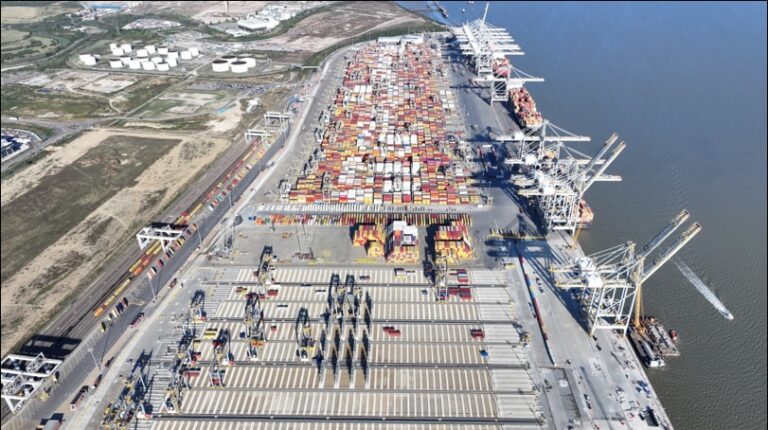Global logistics company DP World has announced a £1bn (US$1.3bn) expansion of its London Gateway logistics port, making it the UK’s largest container port in the next five years and boosting the volume and resilience of international trade.
The company, which handles 10% of world trade, will add two new shipping berths and a second rail terminal to handle the expected increase in containerized trade. The expansion will add 400 permanent new jobs at the site.
By the end of the decade, the full quayside, stretching more than 2.5km in length, will be able to simultaneously receive six vessels, each more than 400m long, and boast Europe’s tallest quay cranes at the height of the Big Ben, according to DP World.
The expansion will take the total invested by DP World at London Gateway to more than £3bn (US$3.9bn), converting the site of a former oil refinery into one of the UK’s largest logistics hubs. The site has most recently seen the addition of a £350m (US$457m) fourth berth, the first to be powered entirely by electricity, and which will soon accept its first ship.
Sultan Ahmed bin Sulayem, group chairman and chief executive officer at DP World, said, “DP World London Gateway will help make Britain’s trade flow in the future by connecting domestic exporters with global markets and delivering vital supply chain resilience for the whole economy. I am proud of this major investment which underlines DP World’s long-term commitment to the UK.”
Subject to planning approval and regulatory requirements, the expansion is expected to significantly increase the volume of trade at the port, which currently handles approximately nearly 2,000,000 TEU (twenty-foot equivalent unit) annually.
Ernst Schulze, chief executive officer for ports and terminals at DP World UK, added, “As this commitment demonstrates, London Gateway’s location and transport infrastructure are ideally placed for expansion. With extra capacity comes the reliability and supply chain resilience so important to our customers and consumers, especially in uncertain times such as the pandemic and disruption due to geopolitical events.”





